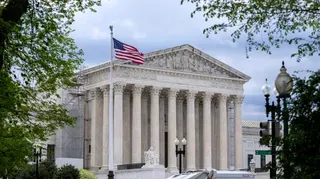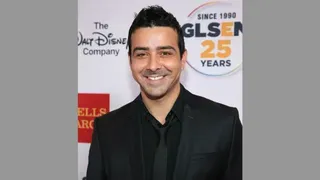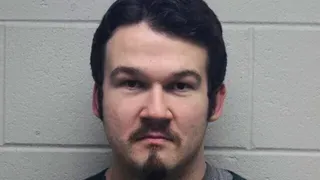March 13, 2009
Tenn. church shooter hoped anti-gay attack would spur more
David Foucher READ TIME: 3 MIN.
KNOXVILLE, Tenn.- An unemployed truck driver seething over liberalism told police he opened fire in a church last year because it harbored gays and multiracial families and he hoped others would follow his example.
Prosecutors opened their case file Thursday on Jim David Adkisson, 58, who pleaded guilty a month ago to killing two people and wounding six others at the Tennessee Valley Unitarian Universalist Church in Knoxville. The file includes interviews with investigators and a suicide note Adkisson left in his car.
Now serving a life sentence, Adkisson told police during an hour-long interrogation three hours after the July 27 shooting that he was unemployed, depressed and ready to take his anger out on what he called "an ultra-liberal" church that "never met a pervert they just didn't embrace."
"They just glory (in) these weirdos and sickos and homos," he said in an interview recorded by investigators.
He also railed against the Unitarian Church: "That ain't a church, that's a damned cult," Adkisson said.
The Knoxville church said in a statement Thursday that the congregation was still healing and that many hoped Adkisson would also "be healed of whatever motivated his actions."
Adkisson walked into the church, pulled a sawed-off shotgun from a guitar case and fired into a congregation of about 230 people watching a children's musical performance.
He expected police would kill him. Instead, church members wrestled him to the ground.
Recorded calls to Knox County's 911 Center proved the panic and rapid response by church members. Just four minutes after the first 911, a police officer reports Adkisson is in custody.
Shortly after a woman caller told dispatchers of the attack, a man calling from the church reported that worshipers had disarmed the attacker and weren't about to let him go.
"They may beat him to death, but they've got him," the caller said.
Adkisson left a four-page suicide note in his SUV in the church parking lot. In it, he described the attack as "a hate crime," ''a political protest" and "a symbolic killing."
He railed against extending constitutional rights to terrorists at Guantanamo Bay, about the news media being "the propaganda wing of the Democrat Party," and how he would like to kill every major Democrat in Congress. But he said they were inaccessible and decided to go after "the foot soldiers, the (expletive) liberals that vote in these traitorous people."
Adkisson concluded, "I'd like to encourage other like-minded people to do what I've done. If life ain't worth living anymore don't just kill yourself. Do something for your country before you go. Go kill liberals."
Adkisson told police he had never attended the church. But his fifth wife, Liza Alexander, who divorced him in 2000, had attended the church and convinced him to work as a counselor at Unitarian youth camps.
"I was in a marriage and I loved this woman, but she was just ... I'd never been around somebody that liberal in my life," he said.
Before she divorced him, Alexander got a protection order, claiming Adkisson threatened "to blow my brains out and then blow his own brains out," according to file documents.
Catherine Murray, who was friends with the couple, told police Adkisson had drug and alcohol problems and "basically was afraid of anybody or anything that was not like him."
Adkisson had worked a series of industrial jobs, including as a pipe worker at a Tennessee Valley Authority nuclear plant and on the Saturn Corp. auto assembly line, until 2006.
He complained in his suicide note and later in his interview with police that he was always being laid off and his prospects were growing slim as he got older. Again, he blamed liberals and Democrats.
He entered the church with 50 shotgun cartridges. He told police he planned to kill every adult in the sanctuary, but would spare the children because they also were "victims."
"I regret that I have but one life to give for my country," said Adkisson, an Air Force veteran. "I hope I start a movement."
Adkisson told interrogators he was "crazy" and depressed but had never been diagnosed. His lawyer has said Adkisson rebuffed attempts to pursue an insanity defense.
"I just did what I did today," Adkisson said. "See if you'd met me in a bar ... on a street, you'd say, 'Well, that's a nice fellow.' And I am."
David Foucher is the CEO of the EDGE Media Network and Pride Labs LLC, is a member of the National Lesbian & Gay Journalist Association, and is accredited with the Online Society of Film Critics. David lives with his daughter in Dedham MA.







